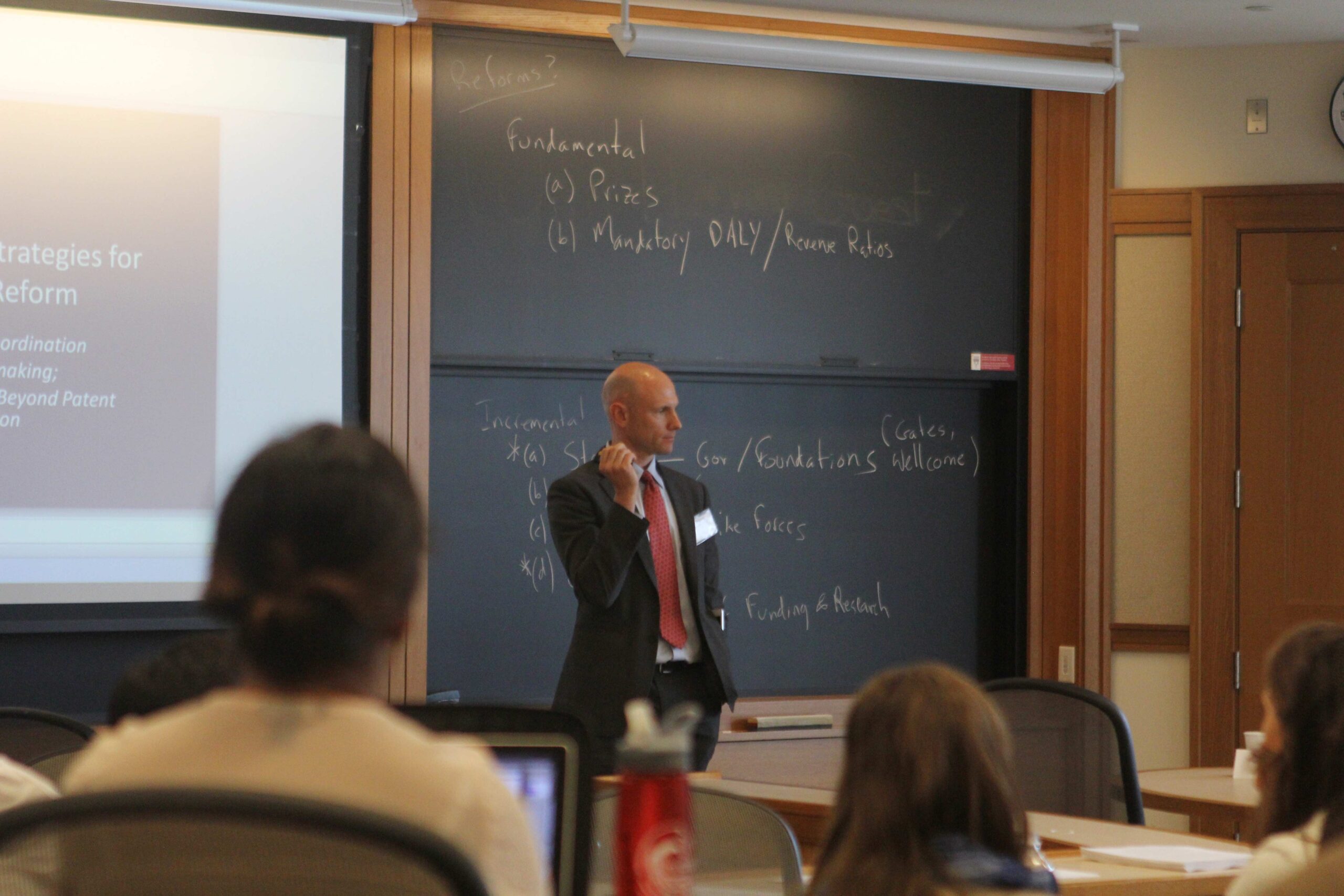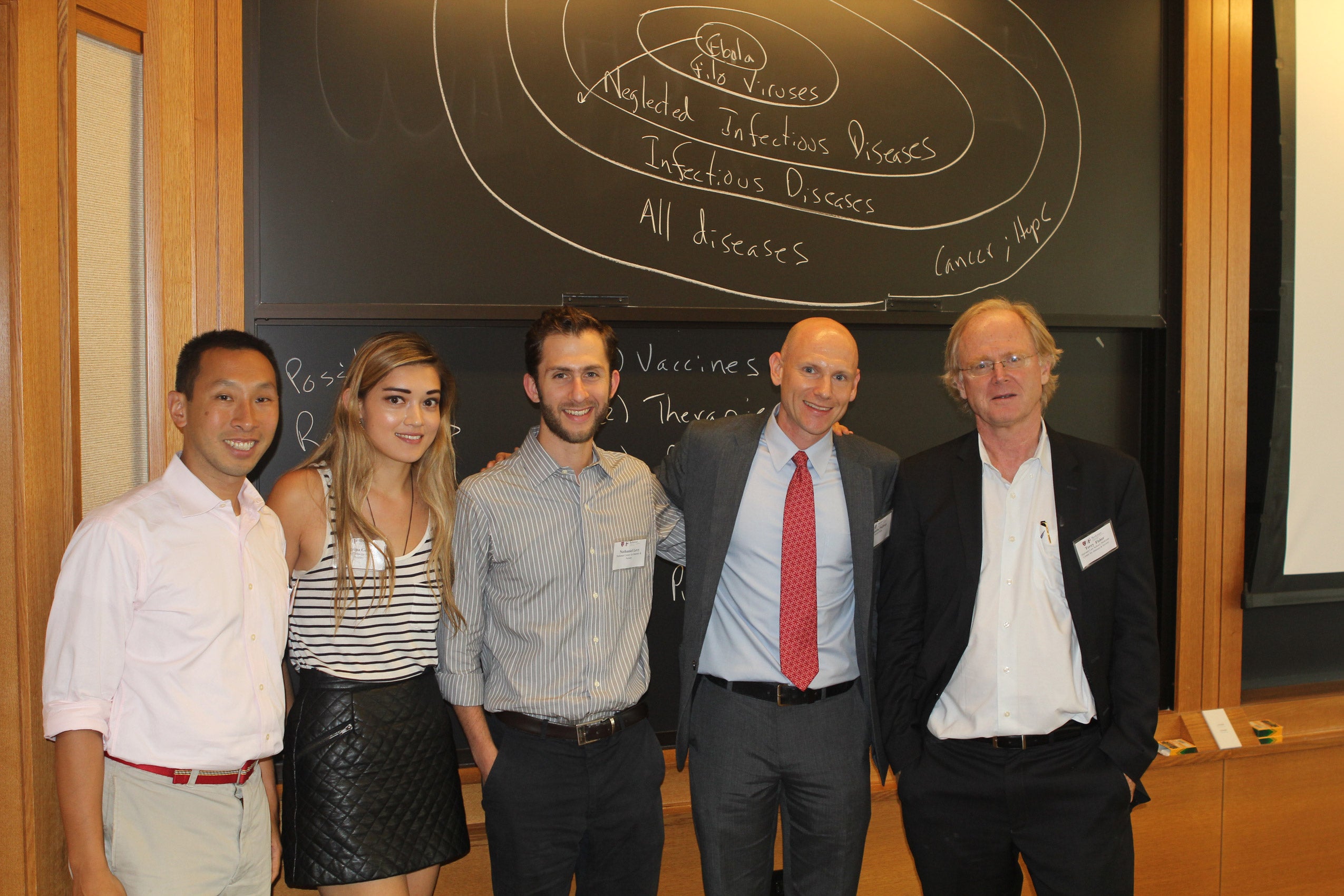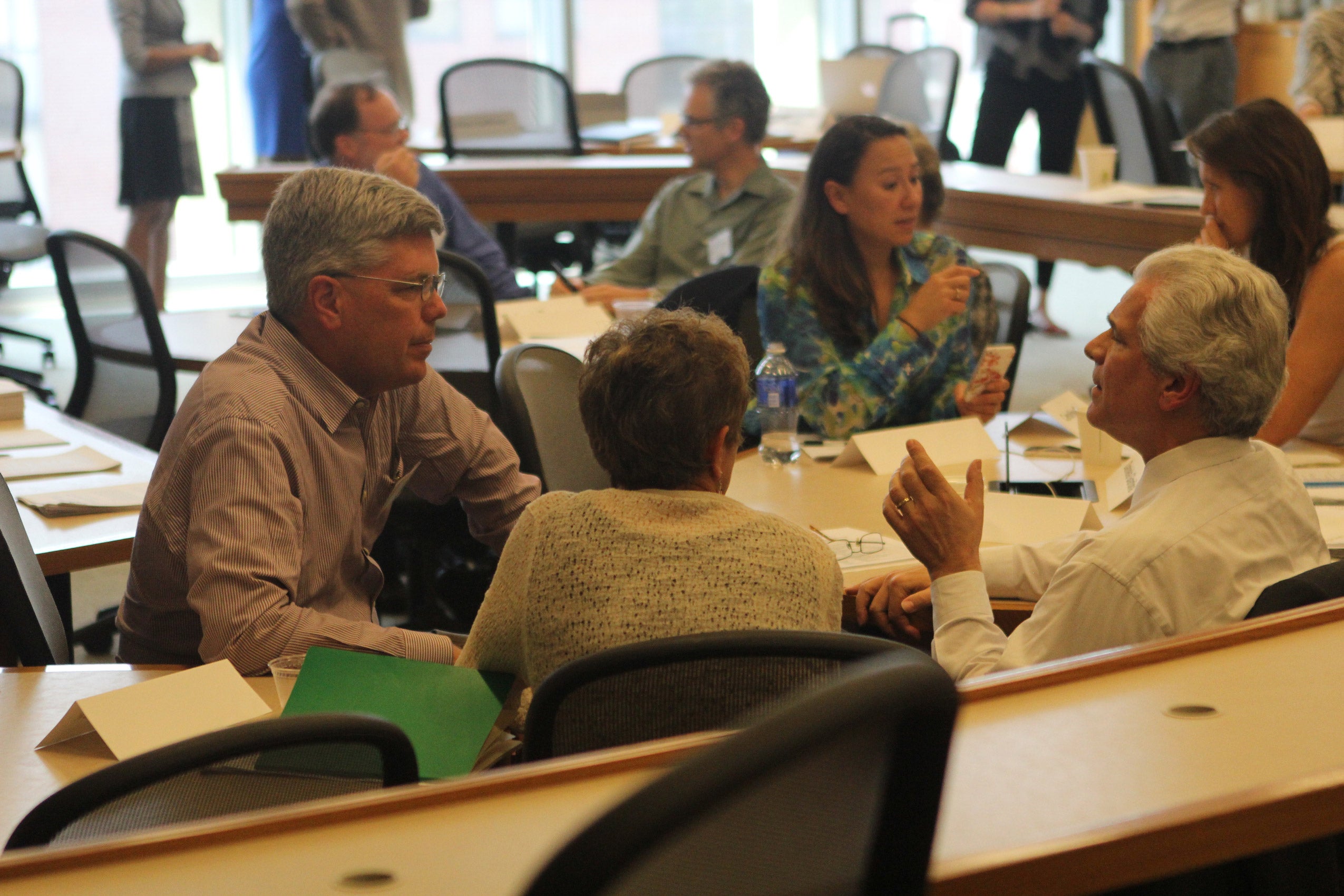Global Access in Action (GAiA), an initiative of the Berkman Center for Internet & Society at Harvard, hosted a workshop on July 10 to explore lessons from the recent Ebola outbreak for improving future preparedness for public health crises.
Forty leaders from civil society, academia, international procurement and donor agencies, government, and the pharmaceutical industry reviewed the Ebola drug development landscape and explored ways to alter policies to strengthen ongoing research and reduce the incidence and severity of future outbreaks.

Almost 40 years after the first outbreak, and 10 years after published reports that a vaccine candidate showed promise in non-human subjects, there is still no cure for Ebola, despite the fact that drug development on average takes about a third of this time frame. In the past two years, Ebola killed more than 11,000 people and devastated three countries in western Africa.
Participants at the one-day workshop grappled with difficult questions generated by the recent Ebola outbreak, including: What structural and/or policy changes could incentivize R&D into treatments for neglected diseases? and What strategies should be adopted to improve future preparedness for similar public health emergencies?
The group proposed four concrete recommendations:
- Greater attention should be paid to developing systematic incentives for investment in research and development into vaccines and medicines that treat diseases that disproportionately affect the global poor and for which there are not adequate commercial incentives for optimal levels of research and development. Innovative financing mechanisms such as advance market commitments, prizes, challenges, and public-private partnerships hold particular promise in this regard.
- There should be greater coordination among humanitarian funding agencies to ensure that scarce funds are directed towards the most urgent problems. An institution dedicated to rigorous identification and surveillance of global-health threats with a ranking system designed to prioritize the most pressing of those threats could help accomplish this objective.
- Greater efforts should be undertaken to ensure that the fruits of humanitarian funding can be deployed to address unmet needs on a sustainable basis. Those who receive humanitarian research funding should ensure that those who need the resulting drugs and vaccines most get access to them. Greater transparency and collaboration among recipients of humanitarian R&D financing would help, too.
- Once effective vaccines and drugs are developed, the governments of affluent countries should acquire and stockpile sufficient quantities of the vaccines and drugs to enable them to be distributed rapidly in regions where outbreaks occur.
Optimizing drug R&D incentives, increasing access to medicines, and improving coordination can help save lives in the next global public health emergency.
“The Ebola outbreak that killed more than 11,000 people in West Africa between 2013 and 2015 offers a painful illustration of how important it is for the world community to get drug development policy right,” said William Fisher ’82, Global Access in Action co-director and WilmerHale Professor of Intellectual Property Law at Harvard Law School.
“Practical steps can save lives and improve responses to global health crises, such as the recent Ebola outbreak,” said Martha Minow, Dean of Harvard Law School. “Before the next crisis, it is vital to bring attention and political will to such practical steps, including nimble incentives for research and development of responsive drugs and coordination and commitment to enhance access to medicines.”
“Stakeholders across the world need to come together to develop systematic incentives for increasing R&D into diseases that disproportionately affect the global poor, and for which there are insufficient commercial incentives,” said Quentin Palfrey ’02, Global Access in Action co-director and special counsel at the law firm WilmerHale.

“As the Ebola outbreak demonstrates, international coordination to respond to a burgeoning public health crisis is very difficult — and the stakes are enormous,” added Mark Wu, Global Access in Action co-director, Berkman Center faculty co-director, and an assistant professor of law at Harvard Law School.
On July 14, Fisher and Palfrey wrote a blog post, “Inside Views: Learning from Ebola,” which summarized the June 10 workshop and elaborated on several of the group’s recommendations.
Global Access in Action explores laws and policies that govern innovation and commercialization of technologies for the poor. The project aims to develop pragmatic solutions to difficult problems that have tangible impact on the lives of the world’s poorest populations.
The workshop cut across two Global Access in Action thematic topics: access to lifesaving medicines for the poor and incentives for research into neglected diseases that disproportionately affect the poor.
In 2014, the project hosted a workshop on ways to increase access to pharmaceutical products in the developing world, with particular emphasis on intra-country price discrimination and humanitarian licensing strategies.
